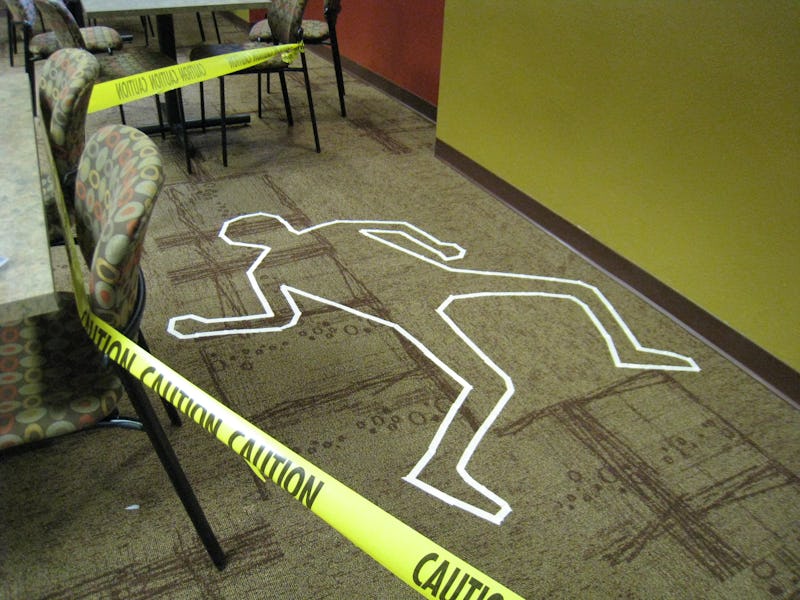Bacteria Are a "Death Clock" That Can Help Forensic Scientists Solve Crimes
Is there anything microbes can't do?

Every day, it seems, we learn more about the superpowers of bacteria. After decades of vilification, the tiny creatures of the planet can finally enjoy their moment in the sun. Microorganisms can cure disease, help us lose weight, and make our food delicious. Here’s another to add to the list: Bacteria can solve crimes.
Tissue sampling from dead humans and other mammals can provide a fairly accurate “death clock,” showing how long it has been since the time of death, a recent paper in Science describes.
When we die, our corpses are colonized pretty much right away by microbes. They set to work decomposing flesh and cycling nutrients back to the environment. “These microorganisms are metabolic specialists that convert proteins and lipids into foul-smelling compounds such as cadaverine, putrescine, and ammonia.” Gross.
What does the fox say? Nothing, anymore.
The earlier colonizers make nutrients available for other, more complex organisms, and the corpse ecosystem develops and evolves in a predictable way. It’s like a forest regenerating after a fire — you can tell how much time has passed by which plants have established themselves and how numerous they are.
Forensic scientists have a few methods for estimating time since death, but all of them are limited. If you find a body quickly, it’s easier — you can take the temperature and check for rigor mortis. But once the body has cooled to the ambient temperature and rigor has left (after about two days), the main tool that remains is analyzing insects in the corpse. But this is an imprecise science — it can lead to estimated times of death that range from weeks to years. On the other hand, microbial analysis can yield estimates that are accurate within three days.
The researchers figured all of this out by taking samples from dead mice in a lab, and four actual human corpses laid out in a natural outdoor environment at a Sam Houston State University forensic science facility in Texas. (This might not be what you envision when you picture donating your corpse to science, but hey — contributing to murder investigations of the future is pretty cool and worthwhile.)
Data analysis showed that the microbial samples could, in fact, give a reliable estimate of the time of death, even months later. Of course, how a body decomposes is affected by a lot of things, including the microbes available in the natural environment, and the temperature. The researchers are going to have to do some more homework before this technique becomes a fixture on CSI.
For further study, the team plans to decompose 36 human corpses at three different locations across the United States, over four seasons. Then it’s up to the bacteria to do their thing.